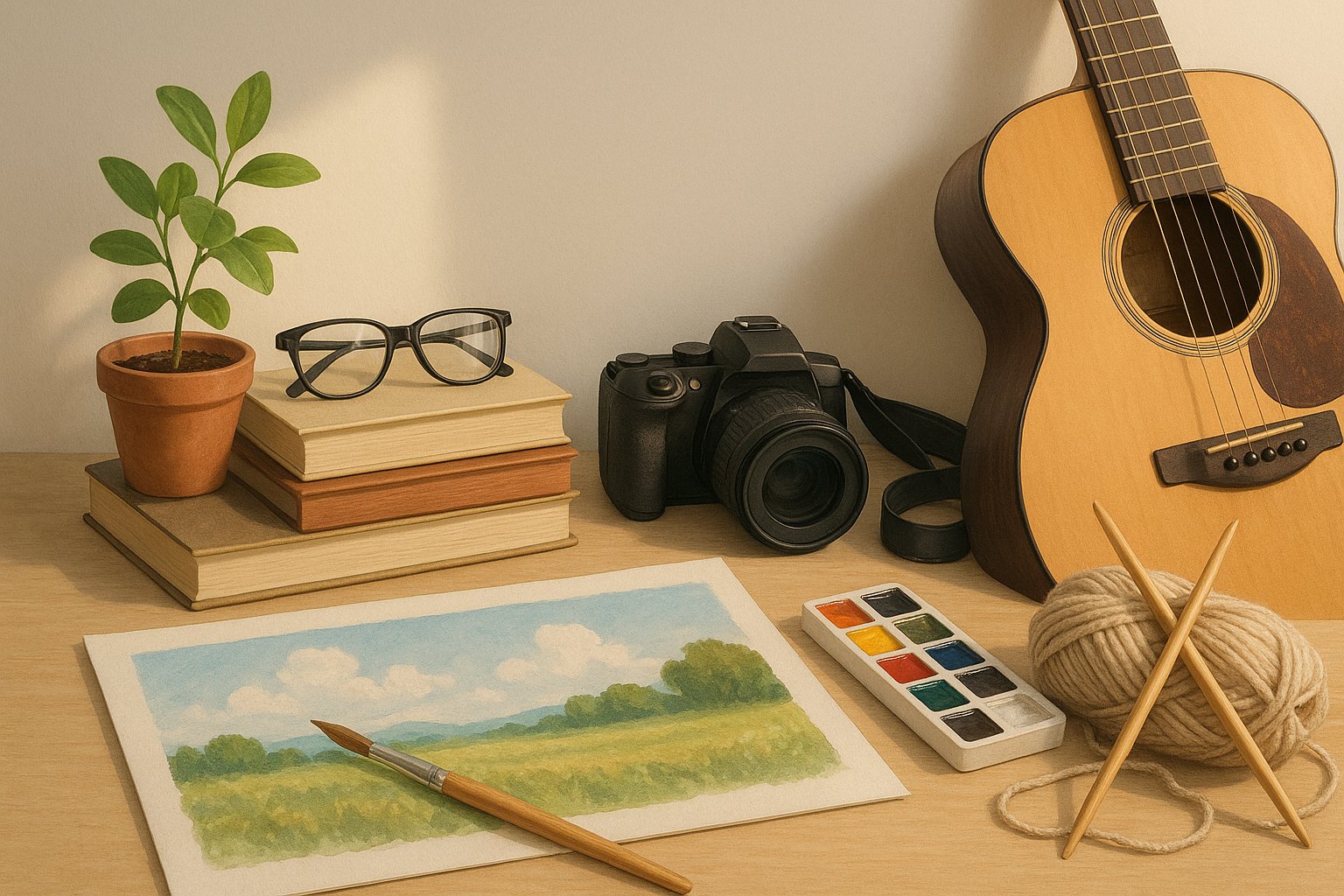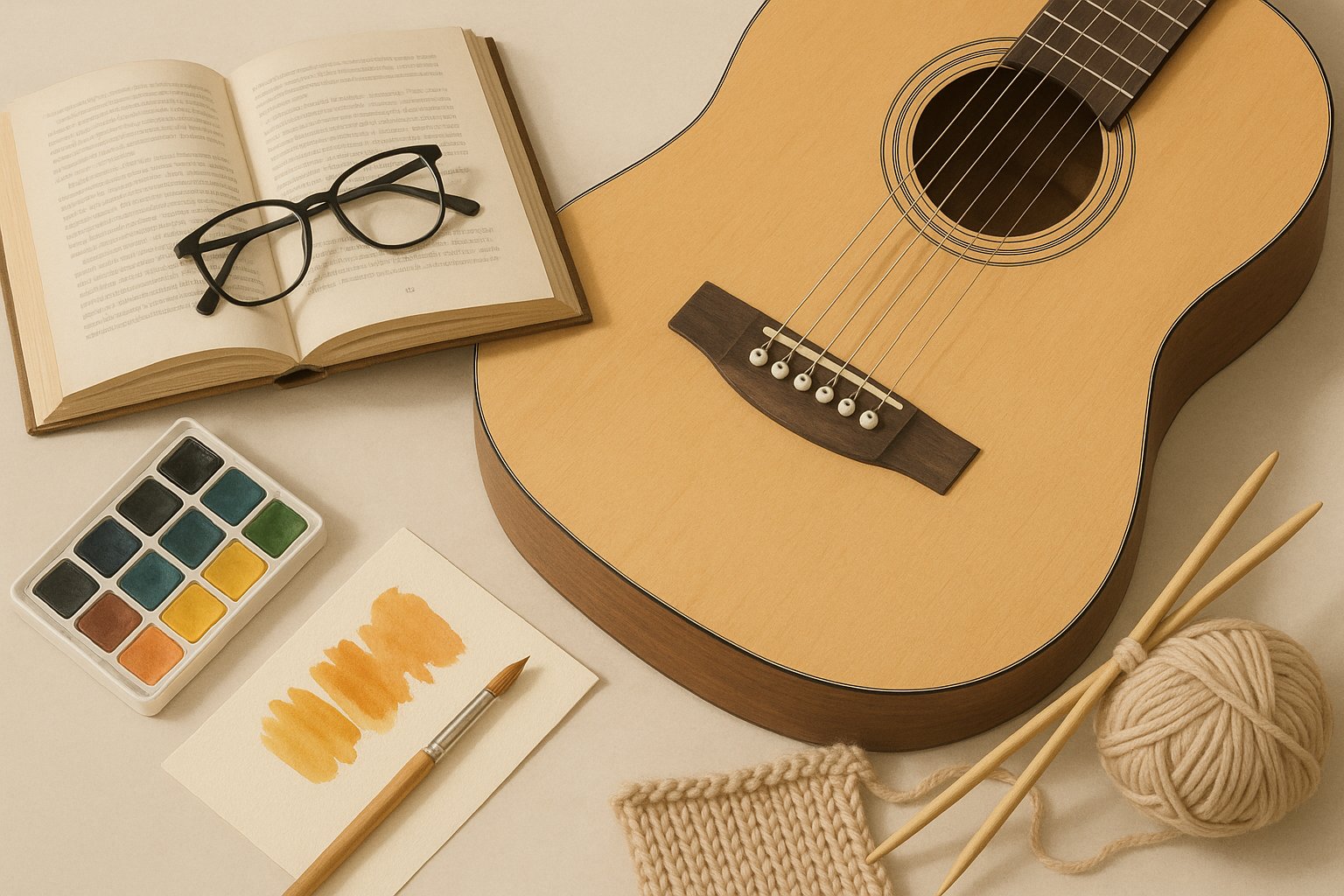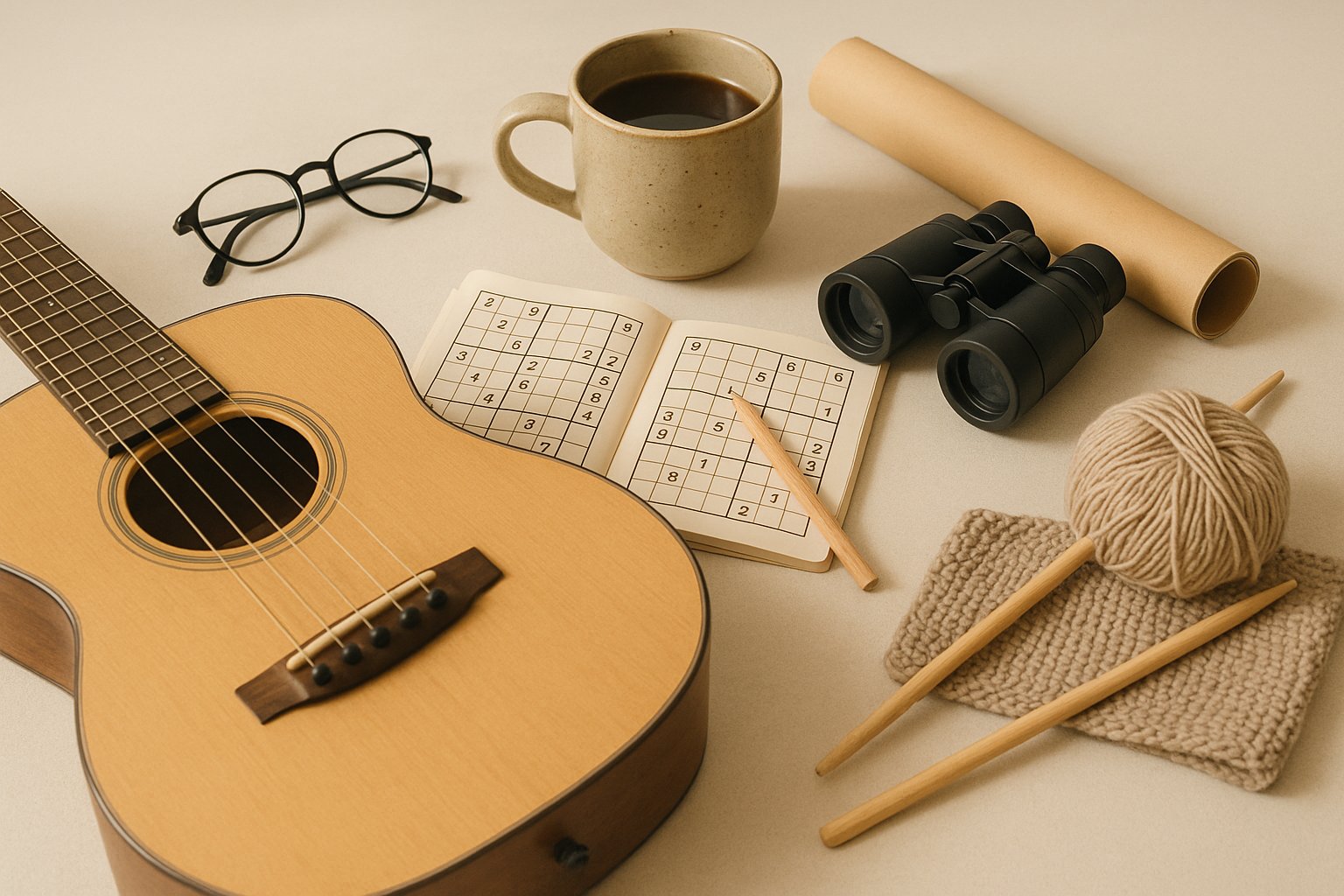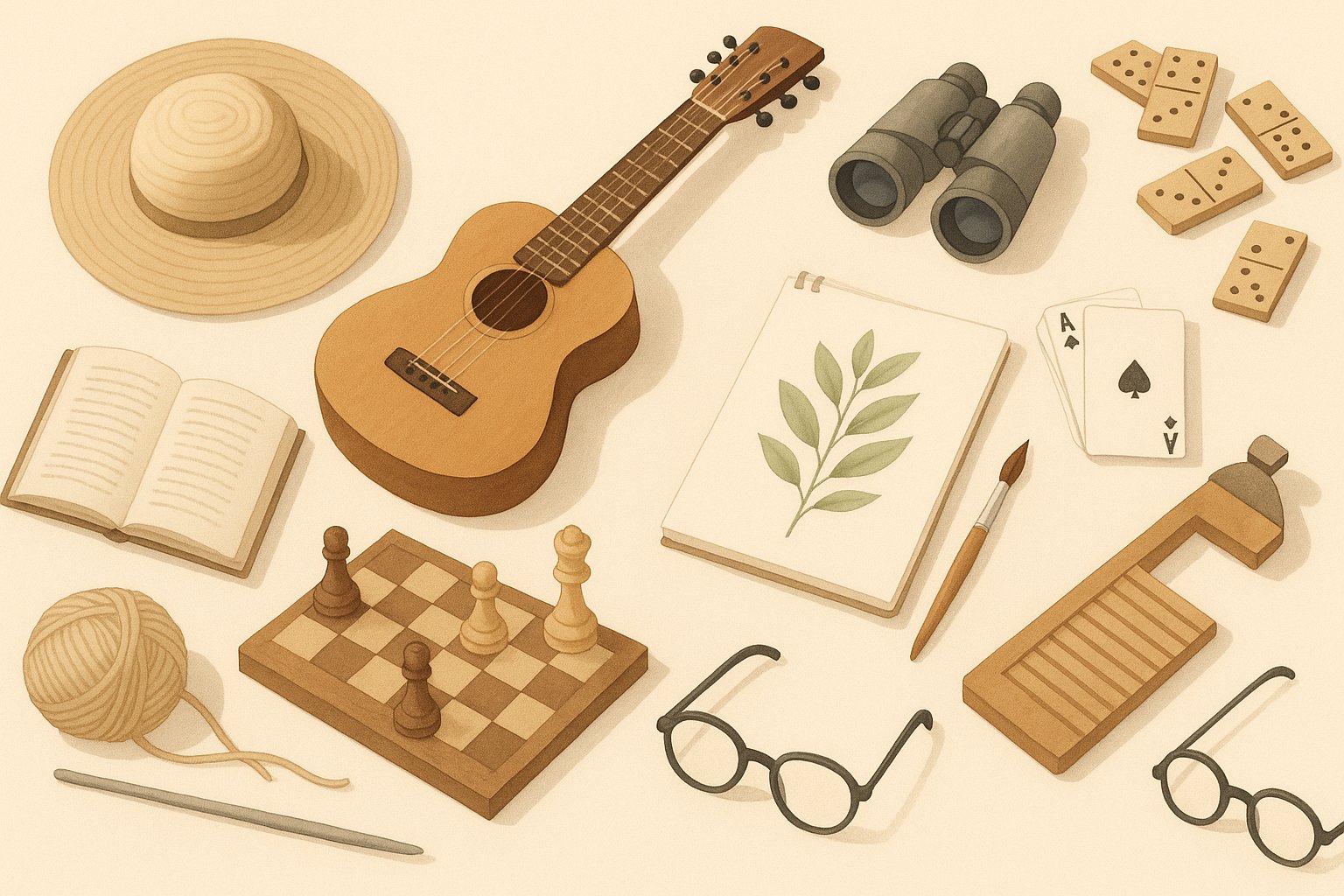15 Free (or Almost Free) Hobbies to Try After 60

Retirement opens up a world of possibilities, but many people worry about the cost of new hobbies. The good news is that staying active, engaged, and fulfilled doesn’t require a hefty budget. Whether you’re looking to boost your physical health, stimulate your mind, or connect with your community, there are countless hobbies you can start for little to no money.
Why Hobbies Matter After 60

Starting a new hobby after 60 isn’t just about filling time—it’s about enriching your life. Research shows that engaging in regular hobbies can improve cognitive function, reduce stress, and even extend longevity. Plus, hobbies provide structure to your days and opportunities to meet like-minded people who share your interests.
The hobbies listed below require minimal investment to get started. Many are completely free, while others might need a small initial purchase of basic supplies. Let’s explore fifteen budget-friendly options that can transform your retirement years.
1. Walking and Hiking
Walking is perhaps the most accessible hobby for seniors, requiring nothing more than a comfortable pair of walking shoes. You can explore your neighborhood, local parks, or nature trails at your own pace. Many communities have walking groups specifically for seniors, making this a social activity as well.
Consider investing in a basic pedometer or fitness tracker to monitor your steps and set goals. A lightweight walking stick can also provide extra stability on uneven terrain.
2. Bird Watching
Bird watching combines gentle outdoor activity with the thrill of discovery. All you need to start is a simple bird identification guide and your eyes. As you get more serious, you might want to purchase an entry-level pair of binoculars and a bird journal to record your sightings.
Local parks and nature reserves often have designated bird-watching areas. Join online communities or local Audubon Society chapters to connect with fellow enthusiasts and learn about the best spots in your area.
3. Gardening
Whether you have a sprawling backyard or just a sunny windowsill, gardening offers therapeutic benefits and tangible rewards. Start with easy-to-grow plants like herbs, tomatoes, or flowers. Many gardeners are happy to share seeds and cuttings for free, and you can often find inexpensive starter plants at local nurseries.
Basic gardening tools like a trowel, pruning shears, and watering can are affordable one-time purchases. Gardening gloves will protect your hands while you work with soil and plants.
4. Reading and Book Clubs
Your local library is a treasure trove of free entertainment and learning. Beyond borrowing physical books, most libraries now offer free e-books and audiobooks through apps like Libby or OverDrive. Joining or starting a book club adds a social dimension to reading and gives you a reason to explore genres you might not choose on your own.
If you prefer owning books, a basic e-reader can save money in the long run with discounted digital titles. Many classics are available completely free in digital format.
5. Writing and Journaling
Writing costs nothing but time and offers profound benefits for mental health and memory preservation. Start a daily journal, write your memoirs for your grandchildren, or try your hand at poetry or short stories. The act of putting thoughts on paper can be incredibly therapeutic and helps preserve your life experiences for future generations.
A simple notebook and pen are all you need, though some people prefer typing on a computer or tablet. Consider joining online writing communities for feedback and encouragement.
6. Volunteering
Volunteering enriches your community while giving you purpose and social connections. Opportunities abound at libraries, hospitals, schools, animal shelters, and food banks. Many organizations specifically seek senior volunteers for their experience and reliability.
This hobby costs nothing and actually gives back. You’ll meet people, learn new skills, and make a tangible difference in others’ lives.
7. Photography
Your smartphone likely has a capable camera already in your pocket. Photography encourages you to see the world differently and explore your surroundings with fresh eyes. Focus on subjects that interest you—nature, architecture, people, or abstract patterns.
Free photo editing apps can help you enhance your images. If you want to upgrade, consider an entry-level digital camera or a smartphone lens attachment kit for more creative options.
8. Yoga and Stretching

Yoga improves flexibility, balance, and mental clarity—all crucial for healthy aging. YouTube offers thousands of free yoga videos specifically designed for seniors and beginners. You can practice in your living room at your own pace, with no gym membership required.
A basic yoga mat provides cushioning and grip, though a folded towel works in a pinch. Yoga blocks and straps are inexpensive props that make poses more accessible.
9. Learning a New Language
Learning a language keeps your brain sharp and opens doors to new cultures. Free apps like Duolingo make language learning accessible and fun, with bite-sized lessons you can complete in just minutes per day. Many libraries also offer free language-learning software like Rosetta Stone or Mango Languages.
Consider pairing app-based learning with a language workbook for additional practice. Join conversation groups at community centers or online to practice speaking with others.
10. Genealogy and Family History Research
Tracing your family tree combines detective work with personal discovery. Free websites like FamilySearch.org offer access to billions of historical records. Interview older relatives, digitize old family photos, and piece together your ancestral story.
A basic scanner helps preserve old photographs and documents. Consider a genealogy software program or subscription to sites like Ancestry.com for more extensive research capabilities.
Benefits of Low-Cost Hobbies for Seniors
Budget-friendly hobbies offer unique advantages beyond just saving money:
- No financial pressure: You can explore interests without worrying about wasting money if something doesn’t click
- Easy to try multiple activities: Sample several hobbies to find what truly resonates with you
- Sustainable long-term: Hobbies that don’t drain your retirement savings are ones you can maintain indefinitely
- Focus on experience over equipment: Low-cost hobbies emphasize skill development and enjoyment rather than gear acquisition
11. Painting and Drawing
Artistic expression doesn’t require expensive supplies to get started. A basic set of colored pencils, watercolors, or acrylic paints opens up creative possibilities. YouTube tutorials teach techniques for free, and you can paint on inexpensive canvas boards or even cardboard.
Start with a beginner’s art supply set that includes multiple mediums. An easel isn’t necessary—a table or lap desk works perfectly fine for most projects.
12. Meditation and Mindfulness
Meditation costs absolutely nothing and offers profound benefits for stress reduction and emotional well-being. Free apps like Insight Timer provide thousands of guided meditations for every experience level. Just ten minutes daily can improve sleep, reduce anxiety, and increase overall life satisfaction.
A meditation cushion or yoga mat can make sitting more comfortable, but a regular chair or couch works just as well. The key is consistency, not equipment.
13. Cooking and Baking
If you already eat, why not make cooking a hobby? Experimenting with new recipes keeps meals interesting and can actually save money compared to eating out. YouTube and free recipe websites offer endless inspiration, from international cuisines to healthy meal prep.
Basic kitchen tools like measuring cups, mixing bowls, and a good chef’s knife are worthwhile investments. A simple recipe binder helps you organize favorites you’ll want to make again.
14. Puzzles and Brain Games
Jigsaw puzzles, crosswords, and Sudoku keep your mind sharp while providing relaxing entertainment. Libraries often have puzzle exchanges where you can swap completed jigsaws for new ones. Free brain-training apps and websites offer daily challenges designed to improve memory and cognitive function.
A puzzle board with a cover lets you work on jigsaws without tying up your table. Card games and board games also provide mental stimulation and social opportunities when played with others.
15. Stargazing
The night sky offers free entertainment that never gets old. Learn to identify constellations, track the moon phases, and watch for meteor showers. Free apps like SkySafari help you identify what you’re seeing in real-time by pointing your phone at the sky.
A basic star chart or astronomy book enhances your knowledge. Eventually, you might want to invest in a beginner telescope, but binoculars work surprisingly well for viewing the moon and bright planets.

Conclusion
Retirement should be a time of exploration and growth, not financial stress. These fifteen hobbies prove that staying active, engaged, and fulfilled doesn’t require a large budget. Whether you’re drawn to physical activities like walking and yoga, creative pursuits like painting and writing, or intellectual challenges like language learning and genealogy, there’s a low-cost hobby perfect for you.
The best hobby is one you’ll actually do consistently. Start with whatever interests you most, give it a fair try, and don’t be afraid to sample several options before committing. Your retirement years are the perfect time to finally pursue those interests you’ve been putting off, and with these budget-friendly options, there’s no reason to wait any longer.
